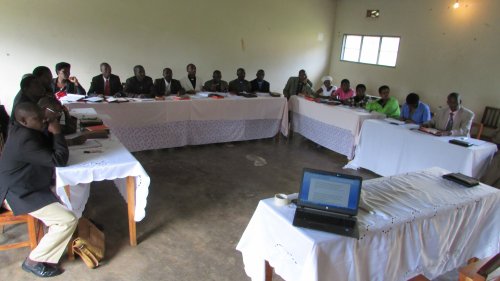A New Step in the Prevention and Fight against Sexual and Gender Based Violence
15 Dec 2015 • EAB PRESS
The Province of the Anglican Church of Burundi is training Pastors, Mothers’ Union members and some Diocesan staff members in the Dioceses of Makamba, Matana and Rumonge.The main objective is to increase knowledge and supporting skills related to SGBV Prevention.

As part of the training there are four major themes.
1. Gender roles and gender inequalities and the promotion of balanced power in relationships.
2. Challenging SGBV through Scripture and relevant teaching such as sermons.
3. Trauma Healing for SGBV survivors.
4. Pastoral care and counselling for couples
All the developed topics followed an existing baseline and research had been carried out to develop an appropriate curriculum for training.
The beneficiaries of the training get involved in engaging other faith leaders on SGBV prevention and response through awareness activities during the 16 Days of Activism against violence against women.
Recently, youth in the Stop Aids Clubs were educated and mobilized in the three dioceses. Forums with key local actors against SGBV were held to discuss and advocate for improved services and policies relating to SGBV. This helped to increase efforts to promote active leadership and advocacy.
The participants told how the training challenged the wrong opinions of gender equality they held based on their culture and traditions which favour inequalities between men and women, negative experiences of relationships between husbands and wives, negative views of masculinity, and wrong interpretations of Scripture. The training improved and enhanced their skills in dealing with cases of SGBV.
In planning for the future Rev. Jeanne Françoise who is leading the trainings said they were working towards, “spreading the trainings in three more dioceses (Buye, Muyinga and Gitega); holding a refresher course for the previous group in Makamba, Matana and Rumonge; equipping counselling centres in parishes with trained pastors; involving church founded health centres/clinics in a functional referral system; training and accompanying home groups who will do counselling with couples whenever necessary in their neighbourhoods and enable the survivors to have assistance in due time through the referral system in order to help them to reach social, economic and psychological rehabilitation; and holding forums with key local actors to discuss improvement of services and policies related to SGBV.”